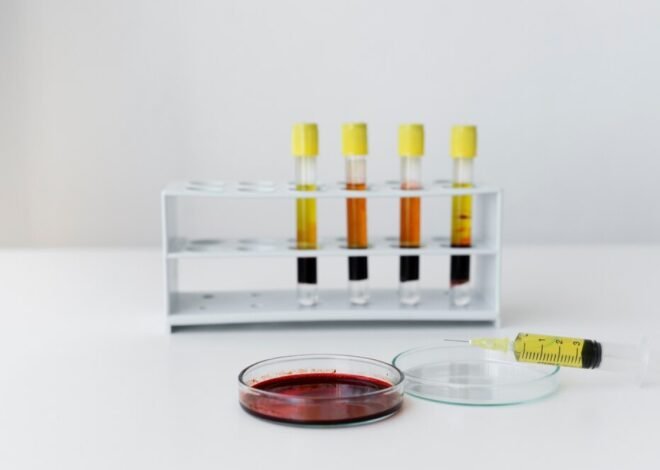
7 Stages of Lewy Body Dementia: Navigating Progression and Symptoms
Navigating the 7 stages of Lewy Body Dementia (LBD) can be challenging, as its progression patterns pose unique prognostic challenges compared to other dementias.
Parkinson’s disease dementia and dementia with Lewy bodies represent the two forms of dementia associated with LBD.
Named after the German neurologist Dr. Friederich Lewy, Lewy bodies are protein clumps in the brain that contribute to cognitive impairment in both conditions.
While LBD shares similarities with other dementias like Alzheimer’s disease, its distinguishing features include a faster cognitive decline and variable symptoms.
Explore our comprehensive guide for insights into the 7 stages of Lewy Body Dementia.
7 Stages Of Lewy Body Dementia Symptoms
Dementia with Lewy bodies (DLB) or Lewy body dementia (LBD) is linked to protein buildup in the brain that impairs normal brain function.
The illness is very difficult to diagnose because its symptoms can mimic those of other brain disorders. DLB frequently begins with trouble moving your body.
Within a year, patients may experience behavioral abnormalities, hallucinations, and cognitive and memory issues resembling those of Alzheimer’s disease.
The following are the seven phases of LBD:
Stage 1
This is the initial phase of Lewy body dementia or LBD which is the absolutely normal stage.
The following are the important symptoms related to the Stage 1 of LBD:
- Absence of symptoms. The patients are perfectly normal.
- Ordinary examinations may reveal incidental findings on the brain in contrast to computed tomography (CT) or magnetic resonance imaging (MRI).
- Some patients report experiencing mood swings and hallucinations while sleeping during the day.
Stage 2
People with Stage 2 LBD experience very mild symptoms.
- Unable or difficult to detect these minor symptoms.
- Symptoms include mild forgetfulness, such as difficulties locating familiar objects or forgetting names.
- It’s possible for patients to carry on with their regular jobs and routines.
Stage 3
At this stage, people might still be in the mild symptoms of experiencing Lewy body dementia.
They might experience the following symptoms:
- Slight memory loss
- Slight forgetfulness
- Slight issues with concentration
- Heightened danger of falls
- Difficulty carrying out their regular tasks and jobs
Stage 4
At this point, patients typically have a confirmed diagnosis.
The moderate symptoms consist of the following:
- Aspiration, choking, trouble swallowing, and excessive drooling.
- Patients frequently tremble and have trouble speaking.
- Disruptive forgetfulness in life
- Having trouble carrying out daily obligations
- Elevated fall risk
- Need for ongoing supervision
- More sleep during the day but fewer hallucinations
- Elevated risk of possible health issues
Stage 5
Typically, the symptoms of the patient in stage 5 are mild to moderate. This includes:
- Severe memory loss and typically have difficulty with day-to-day tasks.
- Significant disorientation and confusion, possibly losing the ability to live alone.
- Patients who have a fever are more likely to get infections and skin conditions.
- You may need to have supervision almost all the time.
- Unable to complete basic tasks.
- Patients may experience persistent delusions as well as an increased likelihood of confusion and paranoia.
- Need assistance with eating and taking care of oneself.
Stage 6
In most cases, this lasts for 2.5 years.
The majority of symptoms are more severe. The symptoms include:
- During this stage, the most common inconveniences are urine and bowel.
- Typically, patients lose their ability to speak.
- It is possible that patients will only be able to regain early life memories.
- Need a lot of assistance in order to live comfortably.
- Increased memory loss, trouble identifying loved ones, and minor personality alterations.
Stage 7
Patients with 7 stages of Lewy body dementia experience extremely serious symptoms.
The average duration of stage seven is 1.5–2.5 years.
It is one of the 7 stages of Lewy body dementia where patients lose all their senses.
- Physical systems may deteriorate and communication is restricted in this last phase.
- Individuals with late-stage dementia require significant assistance with daily activities and frequently require round-the-clock support, as they are unable to walk.
10. Common Early Signs Of Dementia
Dementia encompasses a group of diseases marked by cognitive decline, including memory loss and reasoning. Alzheimer’s disease is the most common cause of dementia in the elderly.
The ten early dementia symptoms and indicators that are most frequently observed in Alzheimer’s disease are listed below:
1. Memory loss: It becomes common to depend on others to remember information that you have learned, even if it was learned not too long ago.
2. Planning and problem-solving difficulties: Concentration is lost, making even basic tasks like following a recipe or performing basic math on household bills challenging.
3. Unable to complete routine tasks: Routine tasks like making a grocery list and driving to a familiar place become challenging.
4. Time and place disorientation: It becomes difficult to discern the day, time of day, and current location.
5. Inaccurate visual image & distance perception: Reading is challenging when words are not seen in the correct order, and driving becomes difficult when judging distances is impaired.
6. Communication issues: Dementia can hinder speech, making it challenging for individuals to express themselves.
Memory loss may lead to difficulty recalling simple objects, affecting communication and making conversation more challenging.
7. Often losing items: Dementia patients may move items from their original location to a different location where they are typically not kept.
They eventually forget where they’ve stored their belongings.
8. Issues with decision-making: It can be difficult to make wise choices quickly in some situations.
9. Retiring from work or social activities: Individuals suffering from dementia may begin to retreat from their responsibilities both inside and outside the home.
They start to distance themselves from social events.
10. Mood & personality changes: Dementia can lead to increased irritability, impatience, and a general sense of bewilderment, nervousness, and depression in individuals who were once calm and collected.
Is Lewy Body Dementia An Incurable Condition?
LBD is a neurological disorder for which there is no known treatment. After symptoms begin, patients with LBD typically have a 5 to 8-year life expectancy.
Depending on their age, the severity of their symptoms, and other medical conditions, some patients may have longer or shorter lives.
Pneumonia and failure to thrive are the most frequent causes of death for LBD patients.
Respiratory issues and trouble swallowing are also frequent.
- Usually, Lewy body dementia (LBD) is a fatal illness that progresses over time.
- As it worsens over time, its lifespan is shortened.
- After diagnosis, the average person lives for eight to twelve years.
- With the right care and symptomatic treatment, some people may live much longer than this, but this is highly variable.
May You Like Also: Top 5 Mistakes After Knee Replacement: Take Care Of These
Final Thoughts
Early, middle, and late are the stages of LBD.
In contrast to other dementias, early-stage dementia (EBD) symptoms may be more related to other cognitive abilities, like multitasking, than memory.
As the illness worsens, hallucinations and severe sleep disturbances are also frequent side effects of LBD.
There is no known treatment for this illness, but even in its advanced stages, fluctuating cognition can cause cognitive symptoms to suddenly disappear. To find a cure, clinical research is still being done.
You May Like Also:













3 thoughts on “7 Stages of Lewy Body Dementia: Navigating Progression and Symptoms”